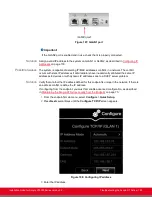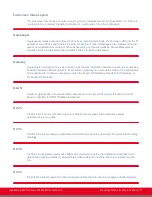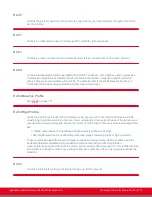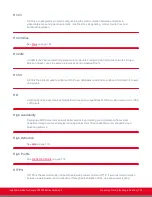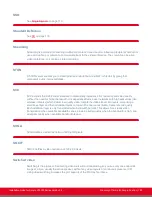
Prefix
on page 169.
Q.931
Q.931 is a telephony protocol used to start and end the connection in H.323 calls.
QCIF
QCIF, or Quarter CIF, defines a video resolution of 176 × 144 pixels (PAL) or 176 x 120 (NTSC). It is
often used in older mobile handsets (3G-324M) limited by screen resolution and processing power.
Redundancy
Redundancy is a way to deploy a network component, in which you deploy extra units as 'spares', to be
used as backups in case one of the components fails.
Registrar
A SIP Registrar manages the SIP domain by requiring that all SIP devices register their IP addresses
with it. For example, once a SIP endpoint registers its IP address with the Registrar, it can place or
receive calls with other registered endpoints.
Resolution
Resolution, or image/video resolution, is the number of pixels which make up an image frame in the
video, measured as the number of horizontal pixels x the number of vertical pixels. Increasing resolution
improves video quality but typically requires higher bandwidth and more computing power. Techniques
like SVC, H.264 High Profile and FEC reduce bandwidth usage by compressing the data to a smaller
footprint and compensating for packet loss.
Room System
A room system is a hardware videoconferencing endpoint installed in a physical conference room.
Essential features include its camera's ability to PTZ (pan, tilt, zoom) to allow maximum flexibility of
camera angles enabling participants to see all those in the meeting room or just one part of the room.
RTP
RTP or Real-time Transport Protocol is a network protocol which supports video and voice transmission
over IP. It underpins most videoconferencing protocols today, including H.323, SIP and the streaming
control protocol known as RTSP. The secured version of RTP is SRTP.
Installation Guide for Scopia XT5000 Series Version 3.2
Glossary of Terms for Scopia Solution | 177

